When your skin is dry to the point of chapping and flaking (hey there, winter temps), your usual hydrating serums and moisturizers just aren’t going to cut it. Will they quench your thirsty face in the interim? Sure. But for long-haul hydration and deep nourishment, it’s best to slather on a face mask for dry skin.
“While serums and moisturizers are meant for daily use and offer consistent hydration and protection, face masks are designed for occasional use and can provide a more intense hydration treatment,” says Ian Michael Crumm, an esthetician based in New York City. But: Not all nourishing face masks are created equally. Keep reading to find out what you should be looking for in a formula, and shop some (seriously hydrating) dermatologist-approved picks.
The best face masks for dry skin, at a glance:
- Best overall: Kiehl’s, Ultra Facial Overnight Hydrating Mask, $45
- Best sheet mask: Epicutis, Lipid Recovery Mask, $115
- Best for combination skin: Goldfaden MD, Skin Balancing Mask, $75
- Best for mature skin: Clarks Botanical, Deep Moisture Mask, $85
- Best for sensitive skin: Pleinaire, Skin Frosting Deeply Hydrating Mask, $28
- Best for brightening: Youth to the People, Superberry Hydrate + Glow Dream Night Cream + Mask, $52
- Best for skin tone and texture: Farmacy, 10% Niacinamide Night Mask, $45
- Best drugstore: Versed, Sweet Relief Overnight Barrier Balm, $18
- Best for redness: Dr. Jart+, Cicapair Tiger Grass Sleepair Intensive Night Mask, $45
- Best for intense hydration: Summer Friday, Jet Lag Mask, $45
Do face masks for dry skin work?
In a word, yes—but it isn’t quite that simple.
Think of a face mask for dry skin as a supplement to the rest of your routine—which should already include hydrating ingredients like ceramides and hyaluronic acid, especially during the winter months. In other words, your daily active treatments will do most of the heavy lifting, and your weekly (or bi-weekly) masking session will help give them a bit of an extra oomph.
“Masks are a great way to treat dry skin to a boost of hydration quickly,” says Rachel Nazarian, MD, a board-certified dermatologist based in New York City. “Masks usually offer occlusive properties—thick layers of active ingredients, sometimes under hydrogels or sheets—which enhance penetration and make them extra effective.”
While there are plenty of hydrating masks on the market, skincare pros recommend looking for the ones you rub in and leave on (versus the kind you wash off after 10-15 minutes) for optimal results. That’s because, in addition to flooding your skin with their moisturizing ingredients, these types of formulas create an occlusive barrier on top of the skin to prevent moisture from escaping into the environment.
The best face masks for dry skin
Key ingredients: squalane, glacier water
This dry skin-friendly mask from Kiehl’s checks all the boxes: It’s luxury without being too expensive; is rich in derm-beloved squalane and ultra-hydrating glacier water; and it can stay on your skin while you sleep. For a formula you know will work—and won’t break the bank—this one’s got you covered. We love it so much, we couldn’t find any cons—it’s that ideal.
Size: 3.4 oz.
Pros:
- Rich in squalane
- Leave-on formula
- Improves moisture retention

Key ingredients: TSC, hyaluronic acid, bio-cellulose
“This highly concentrated mask is so good to use after a day of being out in the winter cold,” says Crumm. “It has multiple humectants to pull hydration into the skin, as well as the brand’s signature TSC that works against inflammation.” Though the mask is a single-use product, it’s made from biodegradable bio-cellulose, which also helps to seal in moisture.
Pros:
- Hydrates and reduces inflammation
Cons:
- Expensive
- Single-use

Key ingredients: jojoba oil, vitamin E, honey
This triple-action, highly active mask is perfect for balancing out skin that can’t decide if its oily or dry. “It’s good for someone wanting exfoliation, treatment, and nourishment all in one,” says Dr. Goldfaden. It contains gently exfoliating enzymes that melt away dead skin cells so that the formula’s hydrating ingredients—like jojoba oil and vitamin E—can dive deep into the skin and work to their maximum potential.
Size: 2 oz.
Pros:
- Hydrates and exfoliates
- Balances dryness and oil production
Cons:
- May not be hydrating enough for extremely dry skin types
<!– –>
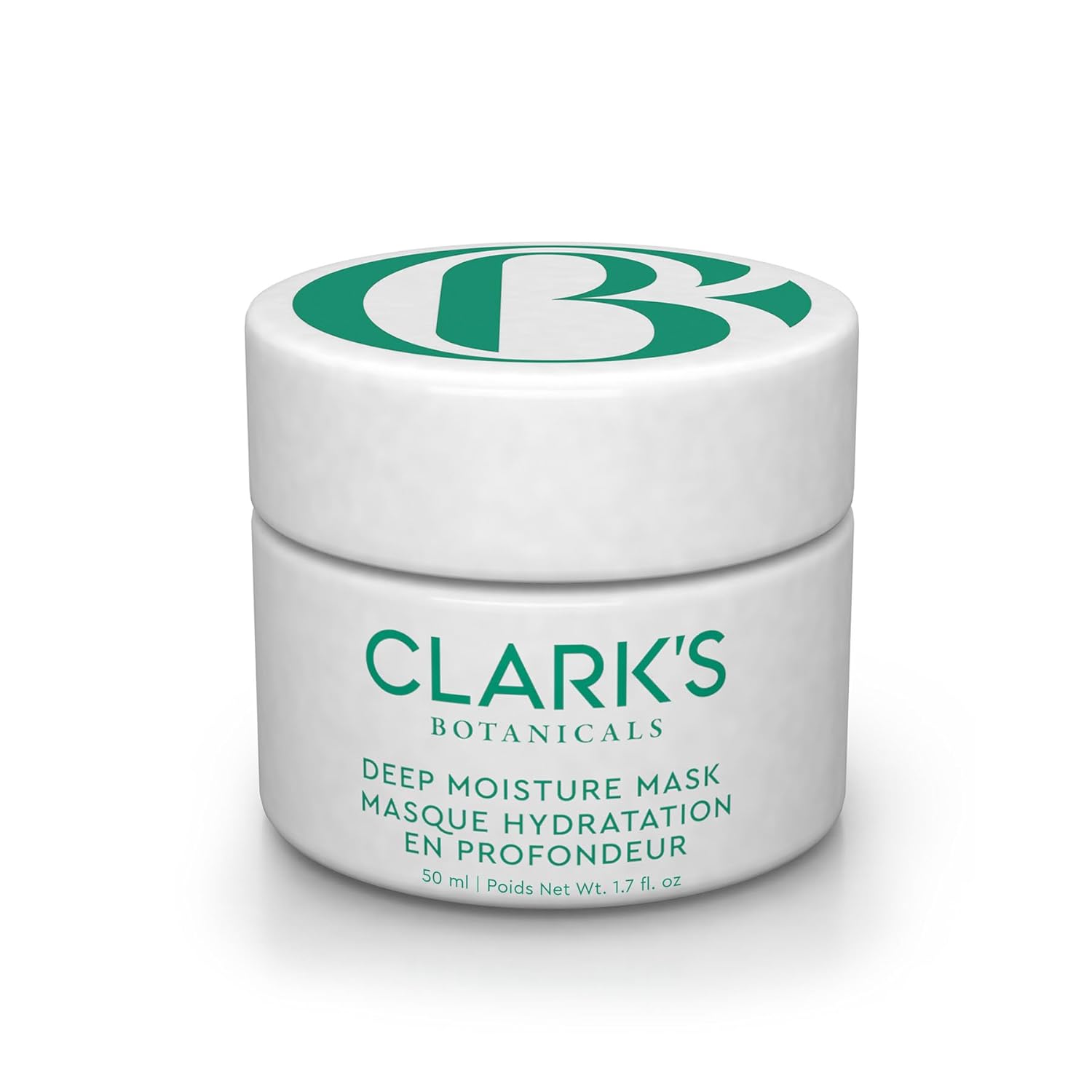
Key ingredients: green tea, jasmine complex
As Dr. Goldfaden puts it, this mask is “straight up hydrating.” It contains a blend of inflammation-fighting green tea, skin-regenerating comfrey root, and a soothing jasmine complex, and offers a hell of a lot of moisture while also diminishing the appearance of redness, fine lines, and wrinkles.
Size: 1.7 oz.
Pros:
- Reduces fine lines and wrinkles
- Calms redness and inflammation
- Works in 3 minutes
- Leave-on formula
Cons:
- Contains natural fragrance

Key ingredients: coconut oil, shea butter, squalane
This “skin frosting” gets Dr. Goldfaden’s stamp of approval for sensitive skin thanks to its inclusion of coconut oil and camelia oil, which work together to hydrate and soothe in a single application. Shea butter, renowned for its rich emollient properties, deeply nourishes, while squalane locks in moisture for a lasting, dewy glow. True to its name it’s delicious on skin.
Size: 3.4 oz.
Pros:
- Great for sensitive skin concerns
Cons:
- Coconut oil may clog pores
- Extremely thick texture that may be too heavy for some

Key ingredients: squalane, hyaluronic acid, vitamin C
This sunshine-in-a-bottle overnight mask pairs its hydrating ingredients with antioxidant-rich brighteners like vitamin C and superberry complex. Together, these actives flood skin with moisture while also fighting discoloration, evening tone, and leaving behind a lit-from-within radiance.
Size: 2 oz.
Pros:
- Rich in antioxidants
- Brightens skin
Cons:
- Pricey
<!– –>
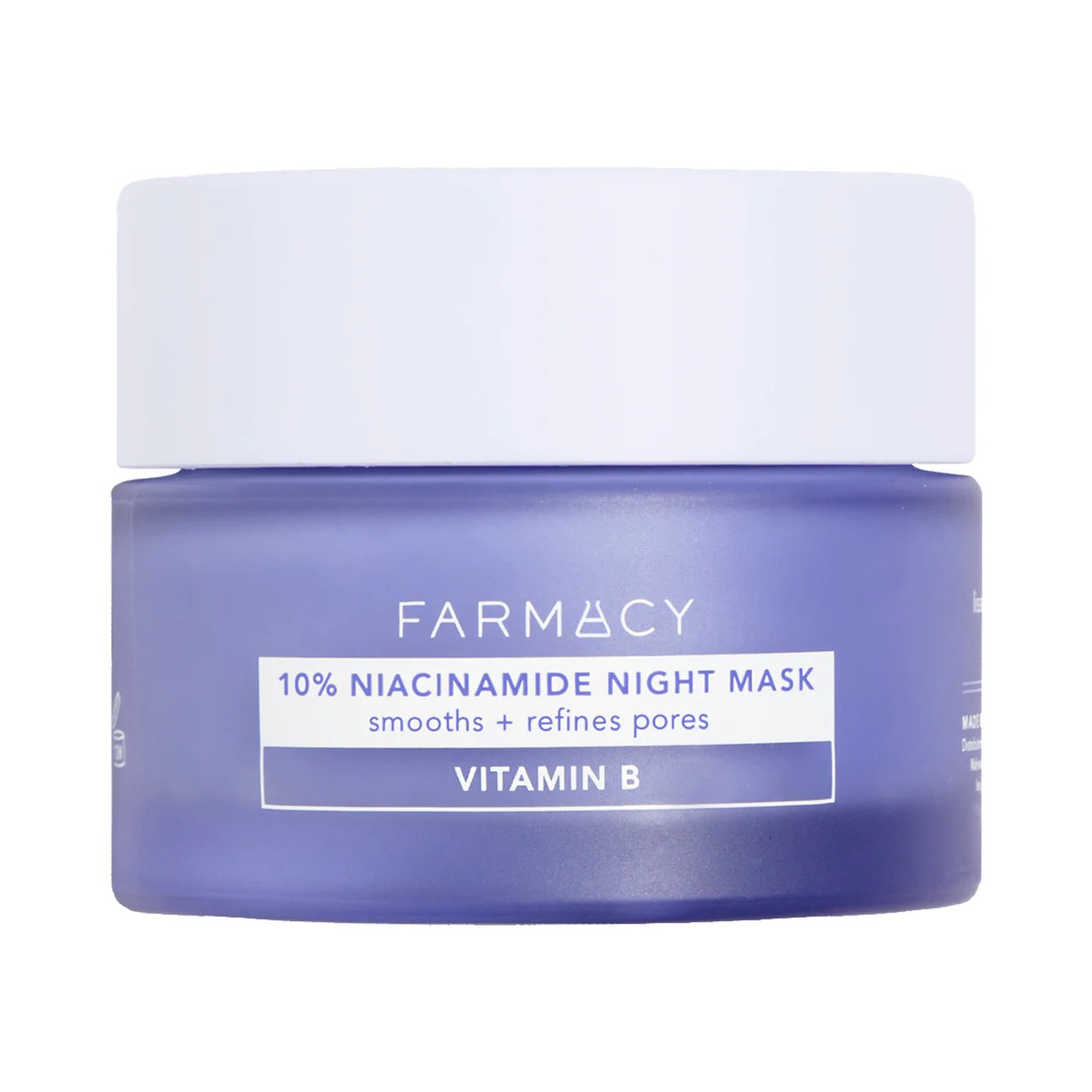
Key ingredients: panthenol, niacinamide
Niacinamide is famous for its ability to fade discoloration and textural issues while also calming redness, and this formula’s jam-packed with it. The silky gel texture offers a glorious cooling effect, and panthenol and beta-glucan offer hydrating and strengthening benefits to the skin.
Size: 1.7 oz.
Pros:
- Leave-on formula
- Refines pores
- Fades discoloration
Cons:
- Gel texture means the formula is not as hydrating as some of the others on this list
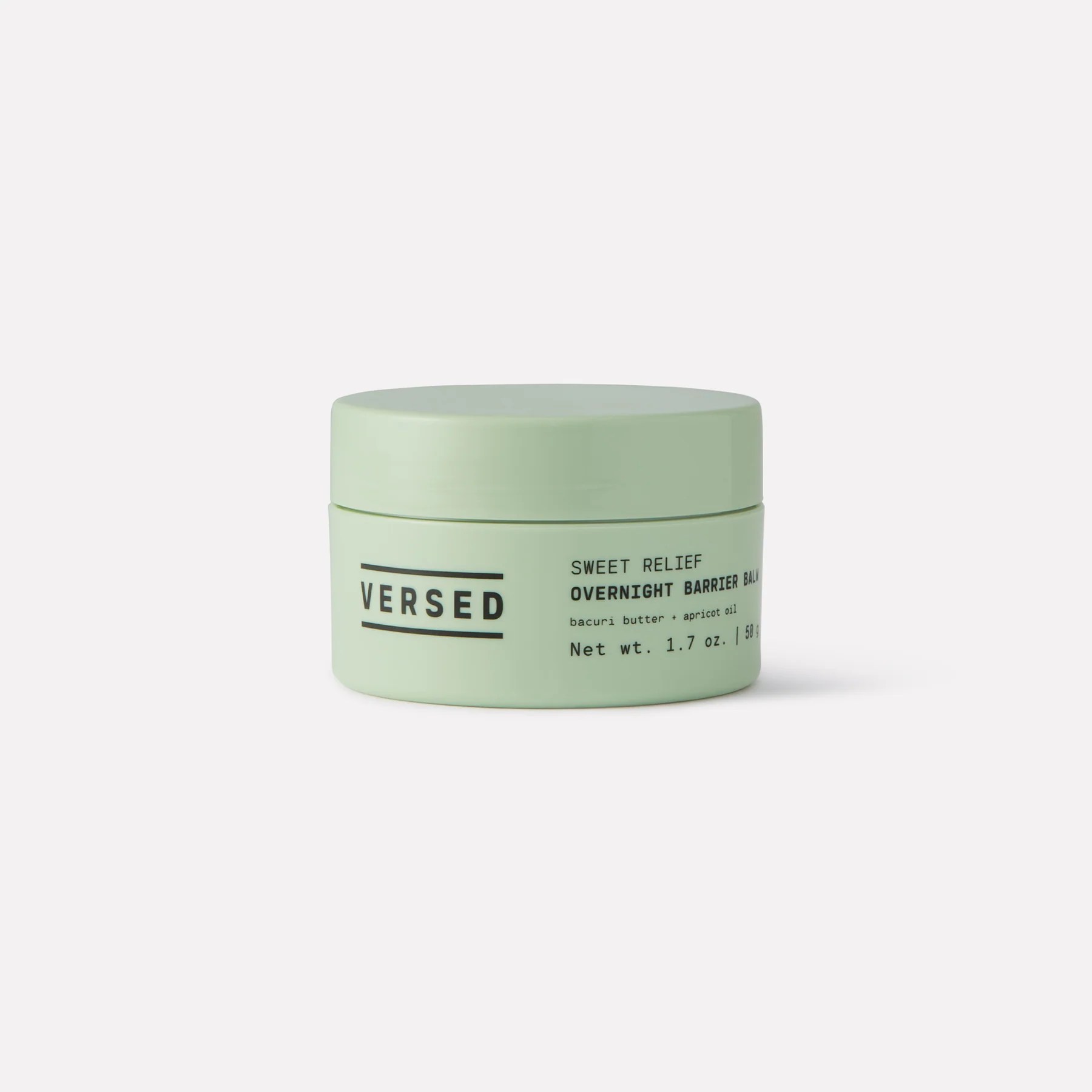
Key ingredients: kokum butter, apricot kernel oil, pea extract
Think of this as the suped-up version of the Vaseline everyone on the Internet slugs their skin with. It uses bacuri butter, kokum butter, apricot kernel oil, and pea extract to deliver hydrating ingredients while also creating a protective barrier over the skin, and is great for leaving on overnight. Oh, and it’s under $20.
Size: 1.7 oz.
Pros:
- Affordable
- Creates an occlusive seal over skin to lock in moisture
Cons:
- Slightly greasy
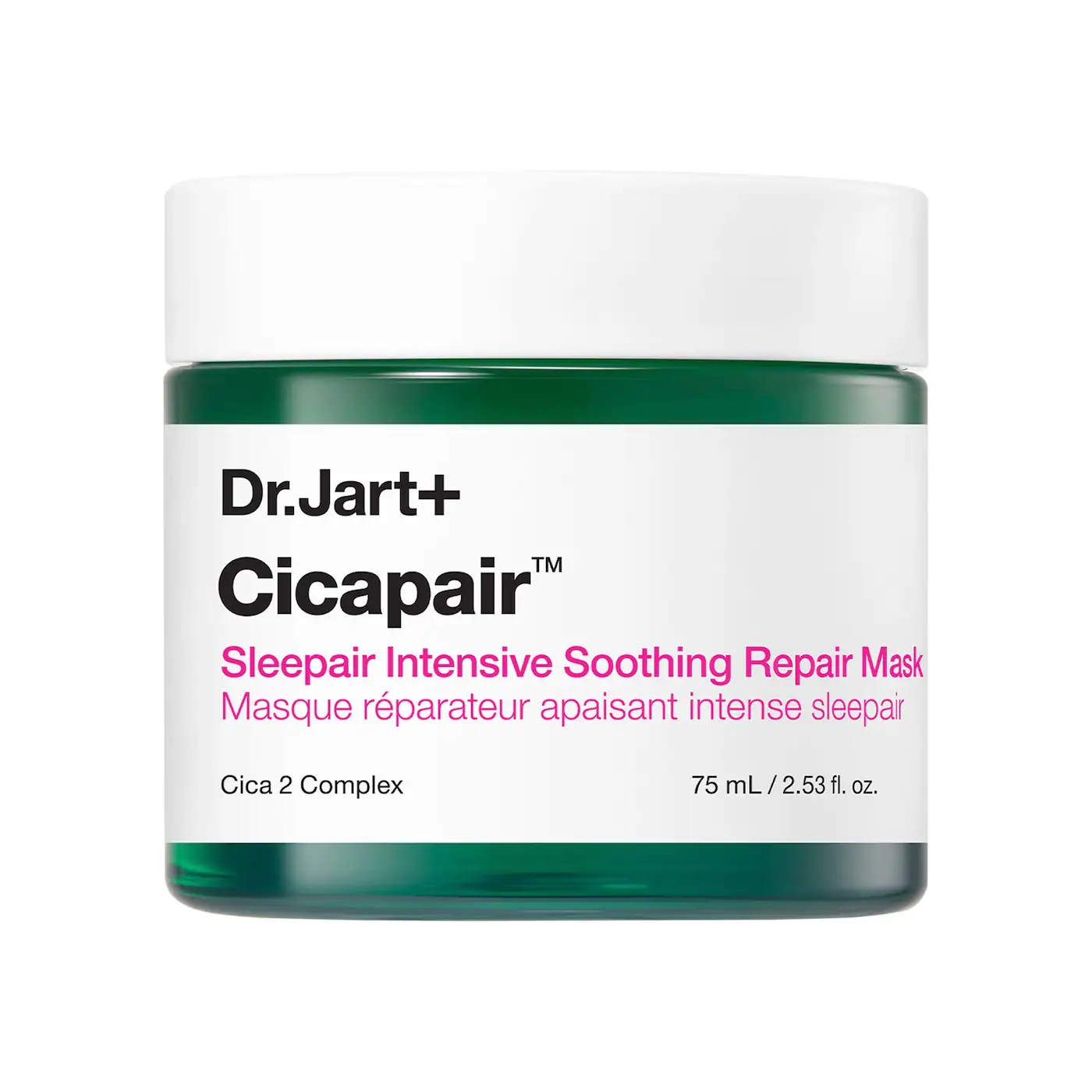
Key ingredients: cica, niacinamide
Cica—or “tiger grass”—is a mainstay in all of Dr. Jart’s viral redness-fighting products, and this maks is no exception. It delivers a high concentration of the ingredient and stays on your skin overnight so you can reap maximum redness-reducing benefits while you sleep.
Size: 2 oz.
Pros:
- Hydrates and calms skin
- Reduces redness
Cons:
- Price recently increased
<!– –>
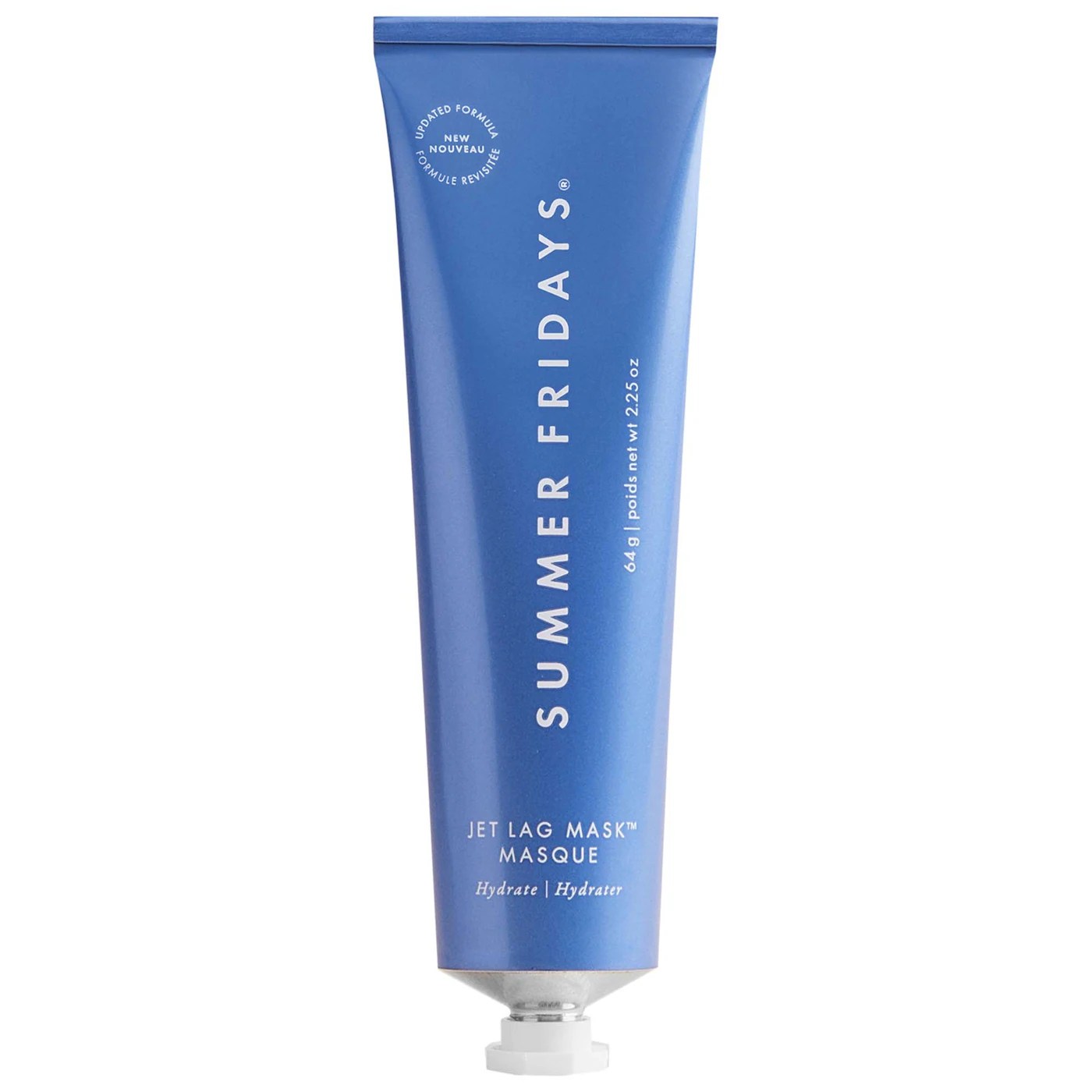
Key ingredients: glycerin, hyaluronic acid, niacinamide
This mask was designed to counteract the dulling and drying effects that travel can have on skin, but it’s a great pick on days even when you aren’t jet-setting around the world. The leave-on formula contains glycerin, hyaluronic acid, and niacinamide, and feels like your favorite moisturizer with a little extra oomph.
Size: 2.25 oz.
Pros:
- Tube format makes for easy, sanitary use
- Not thick or greasy
Cons:
- Doesn’t contain skin-strengthening ingredients
What to look for in a face mask for dry skin
1. Hyaluronic Acid
Hyaluronic acid is a mainstay in any hydrating skincare product thanks to its humectant (AKA “moisture grabbing”) properties. The ingredient draws moisture into the skin and can hold up to 1,000 times its weight in water while also offering lubricating and plumping benefits.
2. Glycerin
Crumm also recommends looking for glycerin, another humectant that attracts moisture into the skin. “Glycerin is not only great for drawing in water, but it’s also super gentle, which is why you’ll see it in a ton of products,” board-certified dermatologist Mona Gohara, MD, previously told Well+Good. “I personally think that glycerin is the one ingredient that’s good for everyone. It’s no bells and whistles, we know it works, and everybody should have it.”
3. Ceramides
Dry skin usually happens as a result of a compromised skin barrier, which is where ceramides come in. These fatty acids (which occur naturally in your skin) act as a sort of “mortar” to hold the bricks of your skin cells together, and using them topically can help retain moisture and keep your skin barrier strong.
4. Squalane
Often referred to as “the Big Gulp of moisture,” squalane is “a naturally derived emollient which softens and repairs skin, improves rough texture and uneven texture while sealing in moisture,” says Gary Goldfaden, MD, a board-certified dermatologist and the founder of Goldfaden MD Skincare.
5. Calendula/Marigold
Dr. Goldfaden loves to see calendula—which is derived from marigold flowers—in nourishing face masks because its “good for moisturizing, soothing, and pain relief, and has anti-inflammatory properties.” It’s great for dry skin that’s also red, itchy, and inflamed.
6. Camellia leaf extract
Camellia leaf extract is another helpful ingredient for bringing a weakened skin barrier back to life. According to Dr. Goldfaden, this moisturizing ingredient also works to carry cell-rebuilding nutrients to the skin, helping to restore its strength and bounce.
7. (Some) plant-based oils
Get your facial oil fix in mask form with the help of a hydrating plant oil. Dr. Goldfaden is a fan of meadowfoam seed oil, which locks in moisture without feeling greasy, while Crumm recommends avocado oil, which is rich in barrier-building fatty acids.
8. Aloe Vera
Aloe isn’t just great for sunburns. Thanks to the plant’s high water content, richness in vitamins (namely C, E, and K), and anti-inflammatory properties, it can also be helpful for soothing and moisturizing super dry skin.
FAQs
What step in your routine should a face mask for dry skin be?
If you’re using a wash-off mask, derms say it should be the last step in your routine before your moisturizer—so you’ll cleanse your skin, apply your serums, put on your mask, then wash it off and apply your moisturizer. If you’re using a leave-on mask, it should be the very last step of all, and replace your moisturizer entirely.
How often should you use a face mask for dry skin?
While you’ll want to follow the directions that come along with whatever mask you choose to use, dermatologists recommend treating yourself to a dry-skin face mask one to two times a week, depending on your skin’s tolerance.
Should you apply a face mask to wet or dry skin?
Because hydrating ingredients are more potent when they’re applied to wet skin, you’ll generally want to use a face mask for dry skin on a damp complexion (unless otherwise stated on the product packaging). “This is dependent on the mask but as a rule of thumb, having the skin a little damp will aid in the absorption and hydration of the mask,” says Dr. Goldfaden.
How can I hydrate my face overnight?
This is where the “leave-on” masks that dermatologists love really shine. Often referred to as “sleeping masks” or “overnight masks” (even though they can technically be used any time of the day), these formulas are essentially heavy-duty moisturizers with a slew of active ingredients. They’re designed to create a protective barrier that seals in the hydrating ingredients from the rest of your routine—and any other moisture in your skin—while you sleep.
How to make a homemade face mask for dry skin
Looking to play kitchen chemist instead of investing in a pro-grade mask? This DIY recipe requires only three ingredients—all of which are likely already in your fridge. “Avocado is rich in antioxidants and healthy fats,” says Adarsh Vijay Mudgil, MD, medical director of Mudgil Dermatology. “This helps your skin cells fight toxins and stay hydrated.” Additionally, the lactic acid in yogurt brings some gentle exfoliation into the mix, and honey offers anti-bacterial and hydrating benefits.
Ingredients
1/3 to 1/2 of an avocado
2 to 3 tablespoons of yogurt
1 teaspoon of honey
1. Mix all the ingredients in a bowl.
2. Apply to damp skin on face and neck, leave on for 10-15 minutes (or until it dries out)
3. Rinse with warm water.
For more dermatologist-approved ways to hydrate your winter skin, check out the video below.
